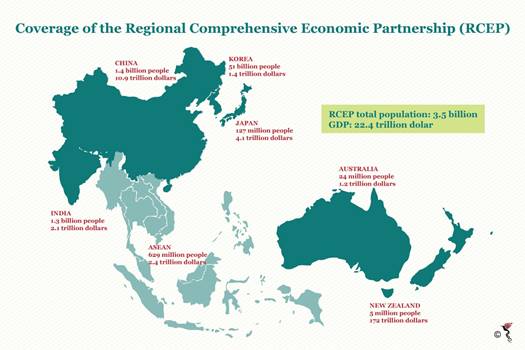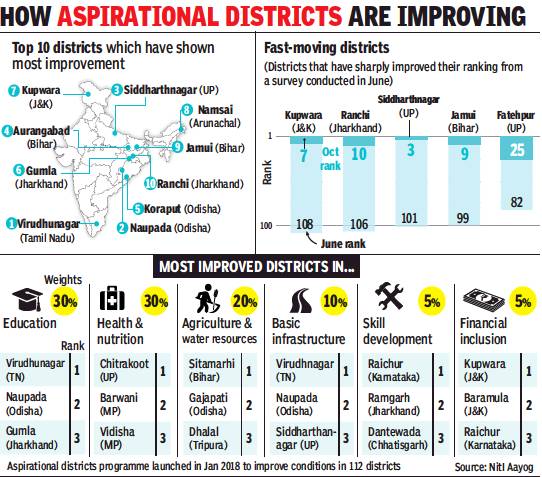



WhatsApp confirms: Israeli spyware was used to snoop on Indian journalists, activists
Facebook-owned platform WhatsApp, in a startling revelation, has said journalists and human rights activists in India have been targets of surveillance by operators using Israeli spyware Pegasus.
Whatsapp claim:
- Israeli NSO Group targeted some 1,400 WhatsApp users with Pegasus.
- At least two dozen academics, lawyers, Dalit activists and journalists in India were under state-of-the-art surveillance for a two-week period until May 2019.
- Smartphones were penetrated through missed calls alone.
- Companies violated US and California laws as well as WhatsApp’s terms of service, which prohibit this type of abuse.
Defendant claim:
- They disputed whatsapp’s allegations and would vigorously fight them.
- They argued that their technology is not designed to be used against human rights activists.
- The group has human rights policy to strengthen governance framework within the group.
- Peasgus has been sold only to government agencies.
Use of Peasgus for surveillance:
- To monitor a target, a Pegasus operator must convince a target to click on a specially crafted ‘exploit link’ which allows the operator to penetrate security features of the phone and installs Pegasus without the user’s knowledge or permission.
- Once the phone is exploited and Pegasus installed, it begins contacting the operator’s command and control servers to receive and execute operator commands, and send back the target’s private data, including passwords, contact lists, calendar events, text messages, and live voice calls from popular mobile messaging apps.
- Operator can even turn on the phone’s camera and microphone to capture activity in the phone’s vicinity.
- In the latest vulnerability, the subject of the lawsuit, clicking the ‘exploit link’ may also not be required and a missed video call on WhatsApp will have enabled opening up the phone, without a response from the target at all.
India will have to do away with its “fear psychosis” of entering into free trade agreements (FTAs) with other nations, as isolating the country by refraining from such trade deals will do it harm.
Government arguments:
- India does not intend to compromise national interest and wrap up such deals without ensuring safeguards for its own industries.
- Government will ensure sufficient, adequate safeguards for the Indian industry while also ensuring huge business opportunities for India, particularly when dealing internationally.
- FTA will not be signed with a forced deadline.
- “Several” sectors will get hurt because India does not have a more “open” economy.
- Government cannot look from individual perspective. It has to look from consumer interests and industry perspective.
- All stakeholders would be taken into confidence before ratifying any agreement.
High Level advisory group report findings:
- There is a need to “urgently” tackle the perception that India has not benefited from FTAs and that trade partners have instead grown at its cost, which is true for nations like Korea and Japan.
- India launch a five-year programme for negotiations of FTAs identified based on factors like long-term sustainability.
- India should look at both tariff and non-tariff barriers in partner countries and that its negotiations on the services segment should go beyond focussing on movement of persons to also focus on commercial presence
- It also recommended measures to boost for instances capital base of the Exim Bank is enhanced by another Rs 20,000 crores by 2022.
- A simpler regulatory framework to attract more overseas investments.
- It recommended implementing elephant bonds — long-term sovereign bonds purchased by people declaring undisclosed income — to “help alleviate the dual problems of black money as well as funds for long term infrastructure.
About RCEP:
RCEP is a mega free-trade deal negotiated between 16 nations — ASEAN members India, China, Japan, South Korea, New Zealand and Australia.

The number of people in India threatened by rising sea levels is at least seven times more than previously estimated, according to a new research.
About the Report:
- Researchers Scott Kulp and Benjamin Strauss of Climate Central, an independent organisation of climate scientists have come out with this report.
- They have used a new methology to calculate the land elevation mitigating the error in earlier studies.
Findings of the Report:
- It says 36 million people along the Indian coastlines currently live on land that will fall below the annual flood level by 2050.
- Much larger areas of land were threatened by rising sea levels because of climate change.
- The study found that 300 million people and not 80 million as estimated earlier, across the globe were currently living in areas that were below the annual coastal flood line.
- Almost 80 per cent of these 300 million people live in China, Bangladesh, India, Vietnam, Indonesia and Thailand.
Vulnerable areas in India:
- The western coastline near Bhuj, Jamnagar, Porbandar, Surat, Bharuch and Mumbai are much more susceptible to rising sea levels than earlier assessments.
- Almost the entire coastline of West Bengal and Odisha has been found under threat.

The Aspirational Districts Programme (ADP) is one of the largest experiments on outcomes-focused governance in the world.
About Aspirational Districts Programme:
- The ADP is Niti Aayog’s flagship initiative to improve health, nutrition, education, and economic outcomes.
- It is spread across 112 of India has socio-economically challenged districts.
- Niti Aayog plays a mentoring role in 27 districts in eight states, home to about 60 million people.
Framework behind ADP:
- The ADP’s theory of change rests on three pillars: Competition, Convergence, and Collaboration.
- Competition fosters accountability on district governments for outcomes (instead of inputs) using high-quality data.
- Convergence creatively brings together the horizontal and vertical tiers of the government.
- Collaboration enables impactful partnerships between government, philanthropy and civil society.
Result of ADP:
- Health outcomes in the mentored districts reveal significant improvements between the first and second third-party household surveys (in June-August 2018 and January-March 2019).
- Increase in registering pregnant women into the health system (from 73 per cent to 86 per cent)
- Institutional delivery of babies (66 per cent to 74 per cent).
- Anti-diarrheal treatment via ORS (51 per cent to 67 per cent) and zinc (34 per cent to 53 per cent).
Reasons behind the Changes:
- Pioneering state and district-level initiatives in both the ADP and non-ADP districts in areas prioritised under the programme.
- Spurred by competition on outcomes, local governments target their efforts and improve programme implementation and design.
- The focus on outcomes enables local experimentation based on a firm appreciation of ground realities.
- Partnerships between various philanthropic and civil society organisations with district governments augment local capacity.
- The programme has shifted focus away from inputs and budgets to outcomes, such as learning and malnutrition, at the highest echelons of the government.
- It has also introduced non-financial incentives to encourage government officials to deliver results.
- The programme has also developed a lean data infrastructure that smartly exploits complementary strengths of administrative and survey data.
Scope for Improvement:
- A simplified ranking index — with few but carefully chosen output and outcome measures — will more clearly signal national development targets, while providing autonomy to local governments.
- Building each district’s internal capacity to produce reliable and actionable data, and promoting a culture of data use, can be made a priority for the ADP.

Expressing concern over the functioning of parliamentary institutions in the country and erosion of public trust in them, the Vice President, Shri M. Venkaiah Naidu unveiled a 15-point reform charter as the basis for a new political normal to enable effective functioning of the Parliament and State Legislatures.
15 Point Charter:
- Ensure attendance of at least 50% of their legislators all through the proceedings of the Houses by adopting a roster system.
- Responding to the concerns over stifling of the freedom of expression of the legislators due to issuance of ‘Whip’, Shri Naidu called for a review of the same to enable reasonable degree of dissent without affecting the stability of the government.
- He advocated a thorough review of the Anti Defection Law to rectify the grey areas like incentivising legislators to resort to actions inviting expulsion from the party besides providing for time bound disposal of defection cases by the Presiding Officer.
- He expressed concern over declining attendance, lack of specialisation, limited tenure of one year, frequent hopping of Committees in parliamentary committees. He advocated for longer tenure instead of the present one year, promoting specialisation by nominating the Members for a longer period.
- Every legislative proposal shall incorporate a detailed account of social, economic, environmental and administrative impact for wider awareness and subsequent assessment of the effect of legislation on ground.
- He conceded that there is no alternative to First past the Post system (FPTP).
- He stated that ‘Parliamentary form of Government’ is one of the features of the ‘Basic structure of the Constitution.
- He stated that there is growing evidence to suggest the decline of caste based voting but it needs to be completely stamped out.
- He underscored the need for the governments to be responsive to the concerns of the Opposition and the Opposition to be responsible and constructive during the debates and while criticising the government and opposing legislation.
- Building consensus on simultaneous polls to let unfettered governance
- Enacting reservation for women in legislature.
- Making rules that automatically take effect against erring members in case of interruptions and disruptions.
- Doing away with the winnability as the sole criterion for selecting contestants by the parties to address the concern of rising number of legislators with criminal record.
The Vice President of India, Shri M Venkaiah Naidu has called for developing a new and long-lasting vaccine to combat TB, which was one of the top 10 causes of death worldwide in 2018.
Observation:
- BCG vaccine being administered for TB does not last for many years.
- Indian Government has initiated trials for testing new candidate vaccines.
- Prevention was the most effective way to control the spread of TB.
- Lifestyle disorders such as diabetes also increase the risk of TB.
- TB treatment saved around 58 million lives globally between 2000 and 2018 and the TB mortality rate fell by 42% during that period.
- He advocated for measures to arrest this pressing problem by adopting a multipronged approach to reduce emissions of harmful gases, especially, which come under PM 2.5 levels.
- Government has pledged a firm commitment to eradicate TB by the year 2025.
- Revised National TB Control Program (RNTCP) has brought down TB incidence in India at an annual rate of 1.7%.
Source: PIB

© 2025 iasgyan. All right reserved